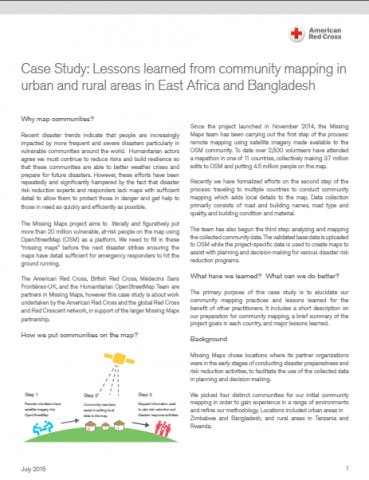Fisheries play a vital role in Bangladesh. They help ensure food security for millions. This blog will explore how fisheries support nutrition, the economy, and livelihoods.
Importance of Fisheries in Bangladesh
Bangladesh is a country with many rivers and water bodies. These water sources are rich in fish. Fish is a primary source of protein for the people. Over 160 million people live in Bangladesh. Many depend on fish for their daily meals.
Contribution To Nutrition
Fish provides essential nutrients. It is rich in protein, vitamins, and minerals. These nutrients are necessary for a healthy diet. Fish helps prevent malnutrition and diseases. Eating fish can improve brain function and overall health.
Here are some benefits of eating fish:
- High in protein
- Rich in omega-3 fatty acids
- Provides essential vitamins and minerals
- Improves brain function
- Supports heart health
Economic Impact
Fisheries contribute significantly to the economy. They provide jobs for millions of people. Fishing, processing, and selling fish create employment opportunities. The fish industry also generates revenue for the country.
Here are some ways fisheries boost the economy:
- Creating jobs in fishing and processing
- Generating revenue through fish exports
- Supporting local markets and businesses
Livelihood Support
Many families depend on fisheries for their livelihood. Fishermen and fish farmers rely on fish for income. They sell fish in local markets and earn money. This income helps them support their families and communities.
Here is how fisheries support livelihoods:
- Providing income for fishermen and fish farmers
- Creating opportunities for small businesses
- Supporting community development
Challenges Facing Fisheries in Bangladesh
Despite their importance, fisheries face many challenges. Overfishing, pollution, and climate change are major threats. These issues can harm fish populations and water quality.
Overfishing
Overfishing is a serious problem. It occurs when too many fish are caught. This reduces fish populations and affects the ecosystem. Overfishing can lead to a decline in fish stocks. This makes it harder to catch fish in the future.
To combat overfishing, sustainable practices are needed. These include setting fishing limits and protecting breeding areas.
Pollution
Pollution is another challenge for fisheries. Water pollution affects fish health and habitats. Industrial waste, chemicals, and plastic can harm fish. Polluted water can lead to fish diseases and death.
Reducing pollution is crucial for healthy fisheries. This can be done by enforcing environmental laws and promoting clean practices.
Climate Change
Climate change impacts fisheries in many ways. Rising temperatures and changing weather patterns affect fish habitats. Extreme weather events can damage fishing infrastructure. Sea level rise can also affect coastal fisheries.
Adapting to climate change is essential. This includes developing climate-resilient fishing practices and infrastructure.

Credit: www.sciencedirect.com
Government and Community Efforts
Both the government and communities play a role in supporting fisheries. They work together to promote sustainable practices and protect fish resources.
Government Initiatives
The government has implemented policies to support fisheries. These policies aim to improve fish production and ensure sustainability. They include measures to control overfishing, reduce pollution, and adapt to climate change.
Some government initiatives include:
- Implementing fishing regulations
- Supporting fish farming and aquaculture
- Promoting sustainable fishing practices
- Investing in research and development
Community Involvement
Communities also play a crucial role. Local fishermen and fish farmers work together to protect fish resources. Community-based management practices help ensure sustainable fishing.
Here are some ways communities contribute:
- Participating in local fishery management
- Promoting awareness about sustainable fishing
- Supporting conservation efforts
Future Prospects
The future of fisheries in Bangladesh looks promising. With the right policies and practices, fisheries can continue to thrive. Sustainable fishing and aquaculture can help meet the growing demand for fish. This will ensure food security and support the economy.
Here are some future prospects for fisheries:
- Expanding aquaculture and fish farming
- Improving fishery management practices
- Enhancing research and innovation
- Promoting international cooperation

Credit: www.researchgate.net
Frequently Asked Questions
What Is The Importance Of Fisheries In Bangladesh?
Fisheries provide essential protein and livelihoods, contributing significantly to food security in Bangladesh.
How Do Fisheries Support Bangladesh’s Economy?
Fisheries boost the economy by generating employment, export revenue, and supporting local markets.
What Types Of Fish Are Popular In Bangladesh?
Hilsa, Rui, and Catla are among the most popular fish species in Bangladesh.
How Many People Work In Bangladesh’s Fisheries Sector?
Millions of Bangladeshis are employed in fishing, processing, and related industries.
Conclusion
Fisheries play a vital role in Bangladesh’s food security. They provide essential nutrients, support the economy, and offer livelihoods. Despite facing challenges, fisheries have a promising future. With sustainable practices and policies, they can continue to thrive. This will ensure food security for millions and support the country’s growth.





















